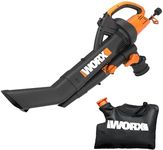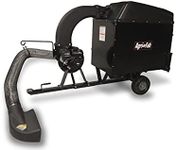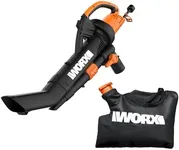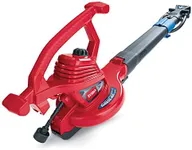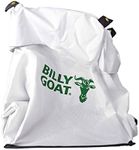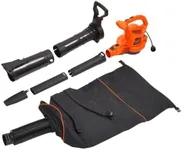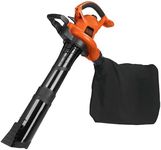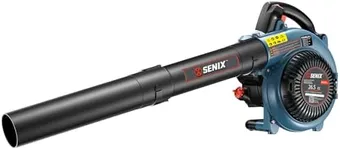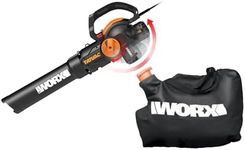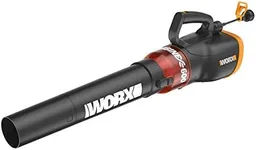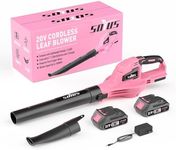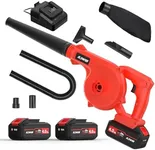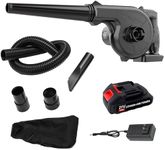Buying Guide for the Best Lawn Vacuums
Choosing the right lawn vacuum can make yard maintenance much easier and more efficient. Lawn vacuums are designed to help you clean up leaves, grass clippings, and other debris from your yard. When selecting a lawn vacuum, it's important to consider several key specifications to ensure you get a model that fits your needs. Understanding these specs will help you make an informed decision and find the best lawn vacuum for your yard.Power SourceThe power source of a lawn vacuum determines how it operates and its overall convenience. Lawn vacuums can be powered by electricity, batteries, or gasoline. Electric models are typically lighter and quieter but require access to an electrical outlet. Battery-powered models offer more mobility but have limited run time. Gasoline-powered models are the most powerful and suitable for large yards but are heavier and noisier. Choose a power source based on the size of your yard and your preference for convenience and mobility.
Engine PowerEngine power, measured in horsepower (HP) or amps for electric models, indicates the strength and efficiency of the lawn vacuum. Higher engine power means better suction and the ability to handle tougher debris. For small to medium-sized yards with light debris, a lower-powered engine (around 5-7 amps or 1-2 HP) may suffice. For larger yards with heavy debris, look for a more powerful engine (8+ amps or 3+ HP) to ensure effective cleaning. Consider the type and amount of debris in your yard when choosing the engine power.
Bag CapacityBag capacity refers to the amount of debris the lawn vacuum can hold before needing to be emptied. Larger bag capacities mean fewer trips to empty the bag, which is convenient for larger yards. Small to medium-sized yards may be well-served by a bag capacity of 1-2 bushels, while larger yards may require a capacity of 3 bushels or more. If you have a lot of trees or generate a significant amount of yard waste, opt for a larger bag capacity to save time and effort.
Mulching CapabilityMulching capability allows the lawn vacuum to shred leaves and debris into smaller pieces, reducing the volume and making it easier to dispose of or use as mulch in your garden. This feature is particularly useful if you have a lot of leaves to clean up. Some models offer adjustable mulching settings, allowing you to choose the level of mulching. If you plan to use the collected debris as mulch or compost, look for a lawn vacuum with good mulching capabilities.
Weight and ManeuverabilityThe weight and maneuverability of a lawn vacuum affect how easy it is to use, especially for extended periods. Lighter models are easier to push and carry, making them suitable for smaller yards or users who may have difficulty handling heavier equipment. Heavier models, while potentially more powerful, can be more challenging to maneuver, especially on uneven terrain. Consider your physical strength and the layout of your yard when choosing a lawn vacuum. Look for features like adjustable handles and large wheels to improve maneuverability.
Noise LevelNoise level is an important consideration, especially if you live in a neighborhood with noise restrictions or prefer a quieter operation. Electric and battery-powered lawn vacuums are generally quieter than gasoline-powered models. Noise levels are measured in decibels (dB), with lower numbers indicating quieter operation. If noise is a concern, look for models with noise levels below 70 dB. Keep in mind that quieter models may have less power, so balance your need for quiet operation with the required performance.

